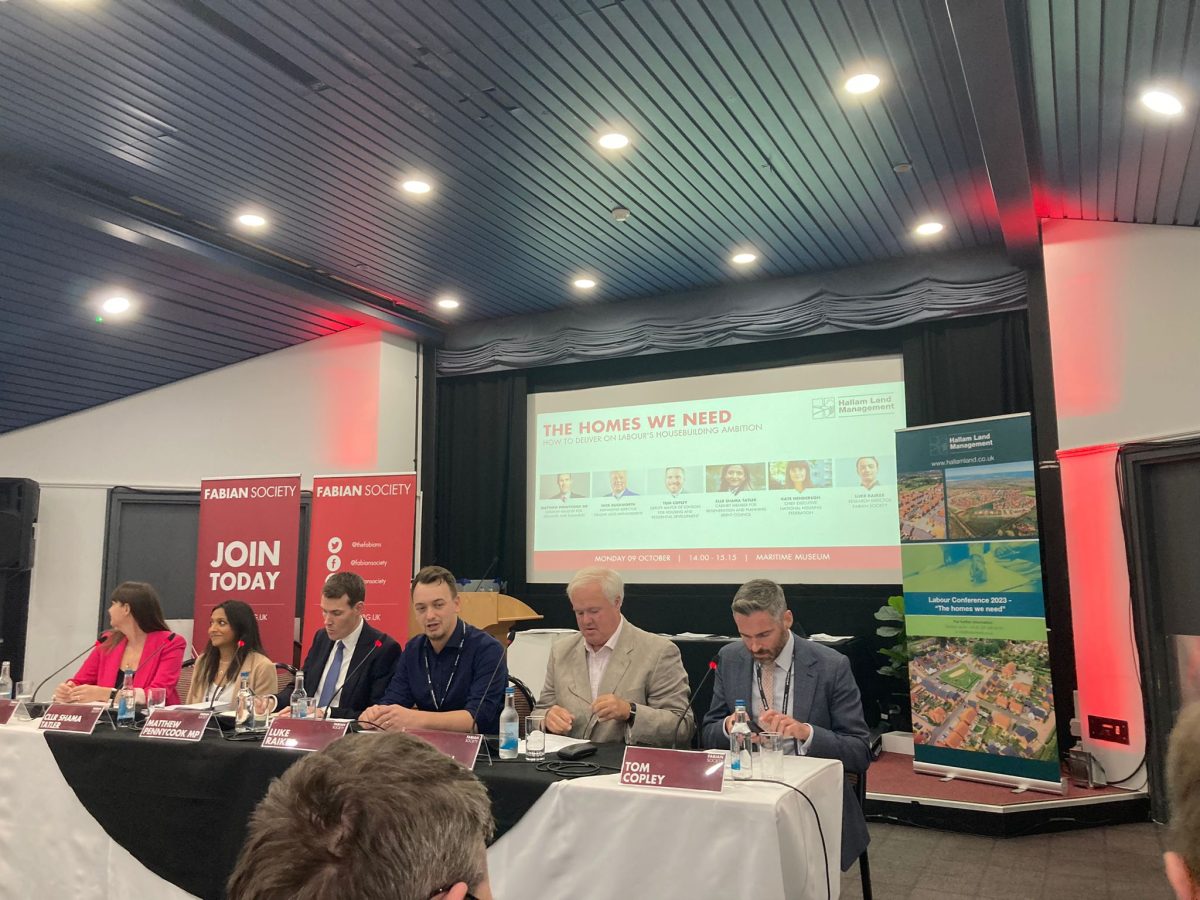Labour Party Conference: The Homes We Need

On Monday 9th October, SP Broadway supported Hallam Land Management at their sponsored fringe event at Labour Party Conference with the Fabian Society. ‘The Homes We Need: How to deliver on Labour’s housebuilding ambition’ brought together leading members of the Labour Party and representatives across the industry to discuss the current housing crisis and what the next Labour government could do to unlock housing.
The panel included Matthew Pennycook MP, Shadow Housing and Planning Minister, Nick Duckworth of Hallam Land, Cllr Shama Tatler of Brent Council, Deputy Mayor Tom Copley of the London Assembly, and Kate Henderson from the National Housing Federation.
Matthew Pennycook opened proceedings by highlighting the pressing issue of the housing crisis noting there is ‘a shortage of affordable homes, and a chronic shortage of genuinely affordable social rented homes.’ This was echoed by Tom Copley, who noted the challenges of the London housing market with 1 in every 23 children in London living in Temporary Accommodation.
Matthew then went on to say that Labour’s policy to build 1.5 million homes in its first five years, amounting to 300,000 houses a year, was ‘stretching’ and ‘bold’ but also ‘realistic’ and ‘pragmatic.’ To meet this target, Labour would be intending to prioritise brownfield sites first, with Matthew recognising we ‘cannot meet housing demand and housing need in this country on brownfield alone’ and therefore will need to ‘look at strategically releasing bits of Greenbelt.’
Matthew added if Labour entered government, reaching their targets would require mechanisms for delivering on scale and Labour would need to reintroduce elements of strategic planning and implement a duty to cooperate. Matthew noted that policy certainty and stability would be important in Labour’s plan to fix the industry and polices such as increased devolution would play their part in helping to reach this target.
Matthew though was sure to specify that Labour would be pragmatic in their development and that most people welcome development if it is well planned out, combatting the simplified argument of YIMBY vs NIMBY. Matthew believes although there will always be people who oppose development, ‘there is a far larger group of people […] who will have development, if it’s got good infrastructure [and is] good at placemaking’.
He added that it was necessary ‘to change the conversations about what boosted supply means for communities’ in the hope this would encourage communities to ‘get behind developments.’
Matthew also added that Labour was not in favour of a complete overhaul of the planning system, rather they intended to make small, targeted tweaks to make Britain’s housebuilding industry work more effectively. Both in his opening remarks and his responses to questions, Matthew reiterated that housing targets were at the heart of their policy and would be added to the NPPF alongside other small tweaks.
Nick Duckworth and Cllr Shama Tatler both shared their thoughts on what wider changes could be implemented, highlighting the thousands of houses that are currently being held up by planning inefficiencies. Nick affirmed the need for certainty in the industry and infrastructure funding needed to be increased.
Cllr Tatler agreed, noting the surplus places in primary schools throughout Brent, indicating people were leaving London. She believed that fixing the planning industry was a moral obligation and would help to combat generational inequality. She believed that the way to fix the issues would be master planning in growth areas, development partnerships, and simplifying the system throughout.
The fringe event was an informative and lively discussion which gave a great insight into what the planning housing industry may look like should the Labour Party win the next general election.






